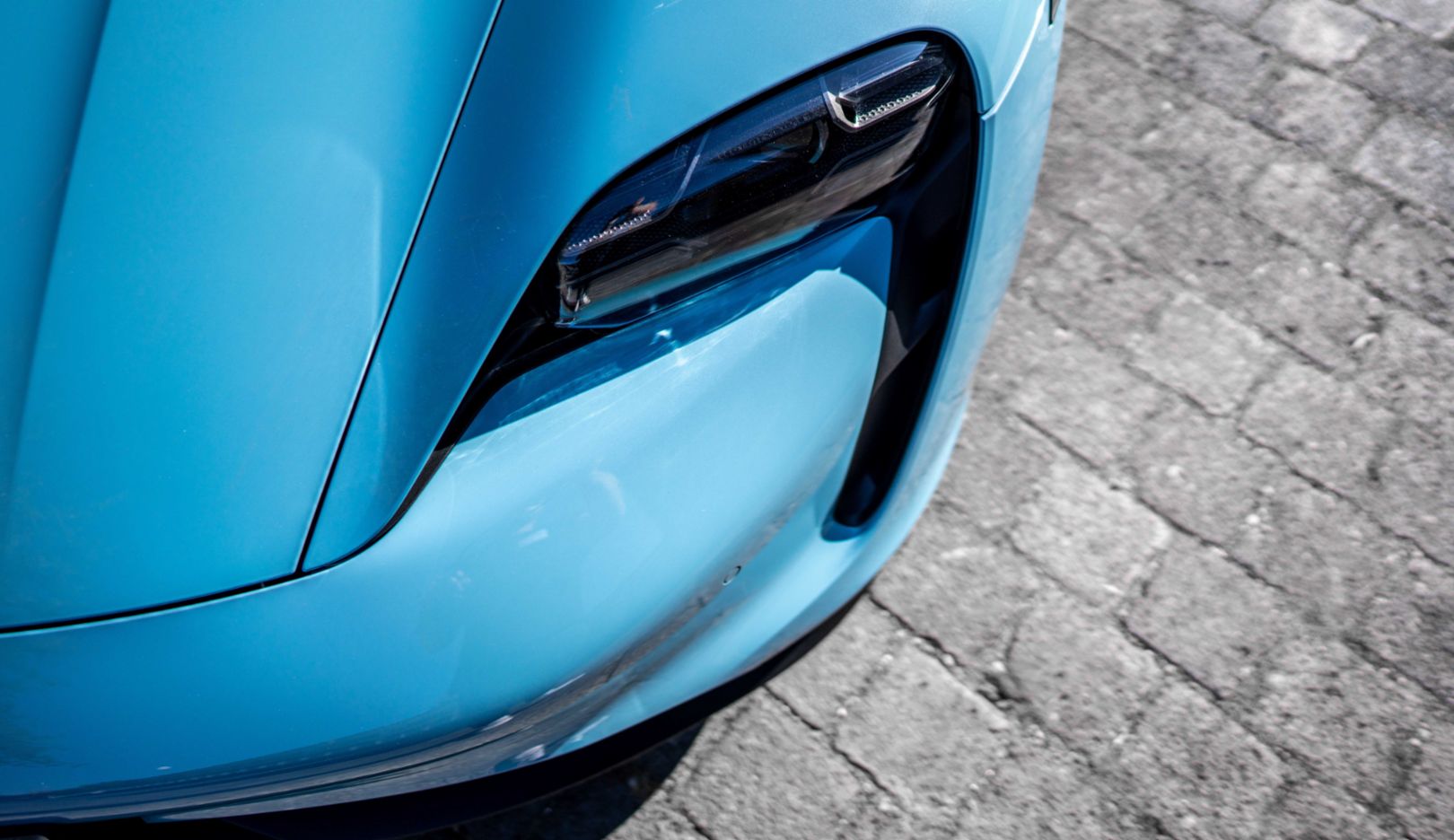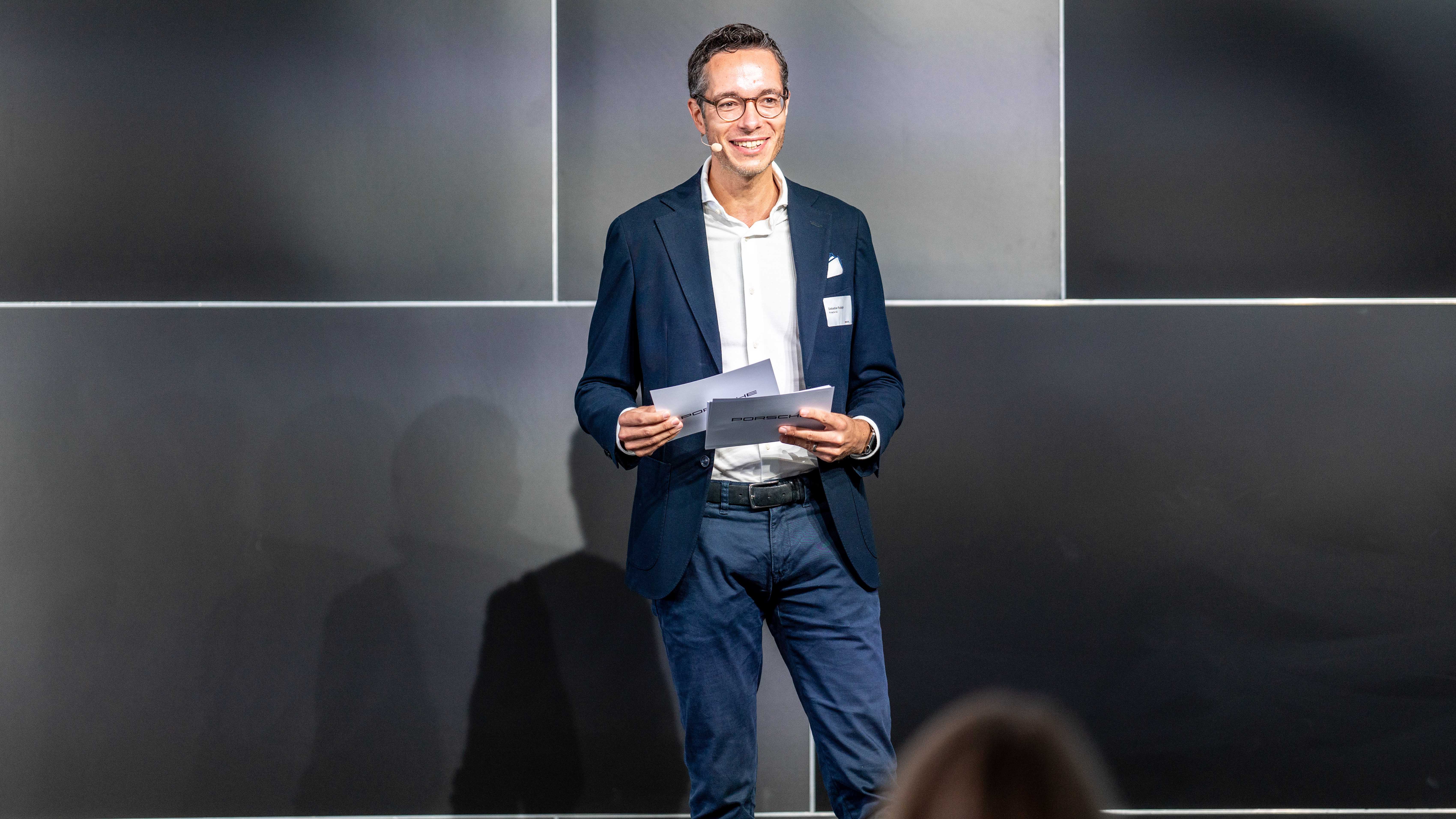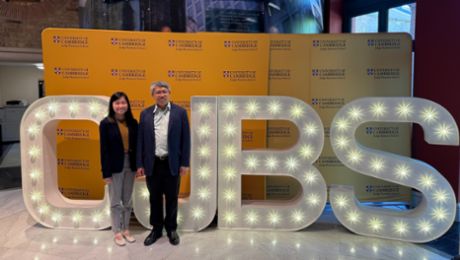The young platform was founded by Lena Schrum, a former woman football player, and Kim Fischer, an expert in the area of brand experience and events. It sees itself as an inspirational place for topics relating to sustainability, design and innovation. “We want to permit networking across industries – and exchange successful examples of sustainable user behaviour,” says Schrum when explaining the conference strategy.
A sports car, redesigned with sustainability in mind
Porsche is not just involved in the aware_Conference as a partner, but is also a participant. Sebastian Rudolph, Vice President Communications, Sustainability and Politics, gave a keynote speech at the TEC Event Campus in Berlin on Monday. “We are pursuing the vision of becoming the most sustainable brand for exclusive and sporty mobility,” emphasised Rudolph in the speech. “Porsche is investing massively in electrification, digital business models and sustainable production – around 15 billion euros already by 2025.”
He had brought concrete proof of the transformation taking place at the tradition-rich brand with him to Berlin: the Taycan. The first all-electric sports car from Porsche links the future of sustainable mobility with the company’s roots. In his keynote speech, Rudolph remembered the company’s beginnings: In 1900, Ferdinand Porsche laid the foundation when he developed the Lohner-Porsche Electromobile with an electric wheel hub motor. “In the year 2020, the motor in the Taycan is powered by 800-volt technology that allows a range of up to 100 kilometres to be charged in just five minutes,” said Rudolph. The vehicle is produced with a carbon-neutral balance at the main plant in Zuffenhausen, Stuttgart.
Holistic approach: Porsche is working on sustainability beyond mobility
However, the Taycan is just one small example of the company’s transformation: “Sustainability is an important pillar of the Porsche strategy,” added Daniela Rathe, Director Politics and External Affairs. “We see the topic holistically, beyond the field of mobility, and are increasingly placing the focus on integrating stakeholders from politics and business.” It is also important in this context to get to know new partners, exchange information with others and find new inspiration – a central part of the discussions, panels and workshops at the two-day aware_Conference.
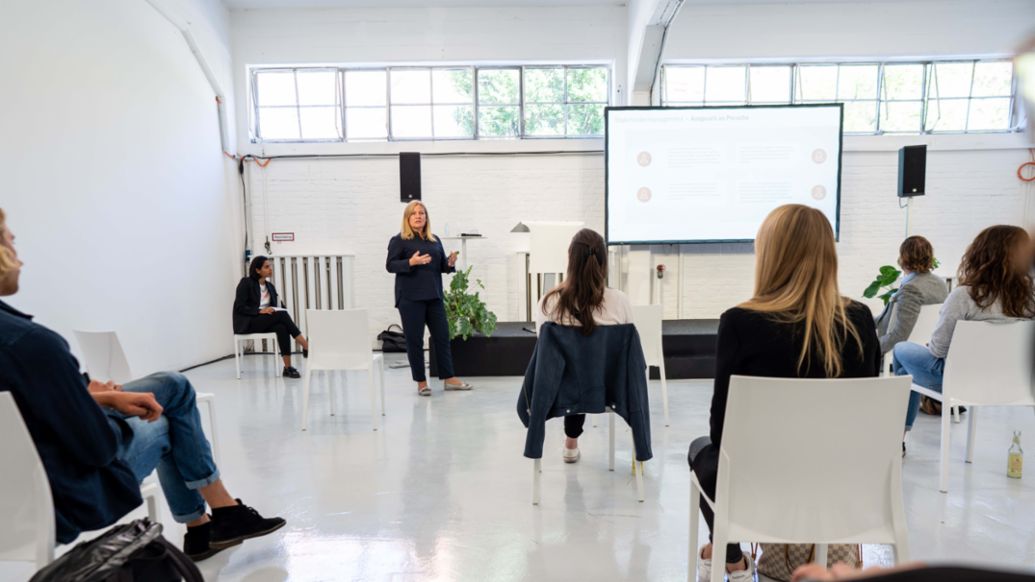
Open dialogue: integration of stakeholders from politics and business
In her master class, Daniela Rathe explained what is important in order to successfully transform all areas of a company – and also described the role of collaboration with stakeholders and the Porsche Sustainability Council. “When we established our Sustainability Council in 2016, we wanted to do one thing above all: to listen closely again,” emphasised Rathe.
The council is made up of independent experts and supplies ideas and visions, while also strengthening the exchange of information with the fields of science, society, politics and business. As a result of this work, Porsche has set itself ambitious but above all binding targets by 2025 with its Sustainability Index. These goals reflect the ecological and social responsibility of a company like Porsche against the background of climate change and increasing digitalisation.
“We are pursuing the vision of becoming the most sustainable brand for exclusive and sporty mobility.” Sebastian Rudolph
Why continuous reinvention is the most important capability in the 21st century
But how can companies succeed in dealing with the uncertainties of the future and the radical transformation due to technical progress in the coming century? Christian Knörle, Head of Company Building at Porsche Digital, explained the art of change in his workshop – with reference to the historian and bestselling author Yuval Harari. “Humankind is faced by unparalleled upheavals due to disruptive technologies. For a child that is born today, much of what it learns now will probably be irrelevant by 2050.”
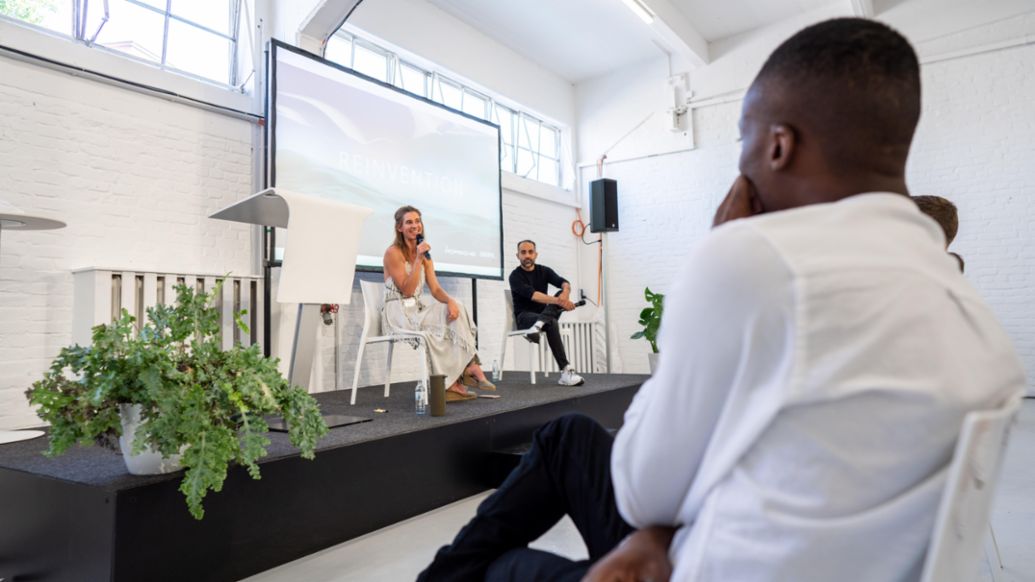
Together with psychologist Eva Kaczor, the innovation expert showed what it is possible to discover if you think outside the box – and explained what his work at Porsche Digital and the company builder Forward31 has to do with the Titanic: namely that size does not provide protection against your downfall.
Every company, every team, and every individual must therefore have the capability to continuously reinvent themselves.
